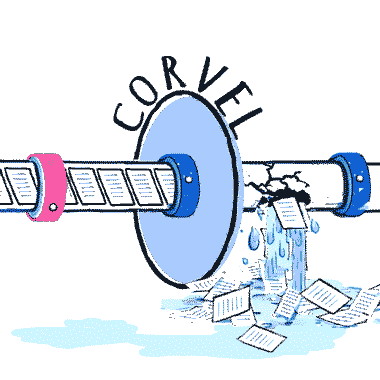Medical-Legal Billing Lacks Necessary Rules
When it comes to medical-legal billing, the workers’ comp field is missing something.
For medical-legal bills, no rules govern the billing form used or the method used to submit these bills. Technically, sending a medical-legal bill on a napkin via carrier pigeon is as compliant as sending the same bill on a CMS 1500 through the mail. This regulatory blind spot leads to unnecessary confusion and billing disputes, increasing friction and wasting the time of providers and payors alike.
Medical-legal Billing Requirements
Payors and their claims administrators often incorrectly apply the Division of Workers’ Compensation (DWC) Medical Billing and Payment Guide requirements to bills for medical-legal services. The rules contained in this guide only apply to medical treatment services; the billing rules are not applicable to medical-legal services.
As cited below, the DWC has issued three regulations about billing for medical-legal services, in Article 5.6: Medical-Legal Expenses and Comprehensive Medical-Legal Evaluations:
- (l) "Reports and documents required by the administrative director" means an itemized billing, a copy of the medical-legal evaluation report, and any verification required under Section 9795(c).
- (a) The cost of comprehensive, follow-up and supplemental medical-legal evaluation reports, diagnostic tests, and medical-legal testimony, regardless of whether incurred on behalf of the employee or claims administrator, shall be billed and reimbursed as follows:
- (2) The cost of comprehensive, follow-up and supplemental medical-legal evaluations, and medical-legal testimony shall be billed and reimbursed in accordance with the schedule set forth in Section 9795.
- (a) The schedule of fees set forth in this section shall be prima facie evidence of the reasonableness of fees charged for medical-legal evaluation reports, and fees for medical-legal testimony.
As we can see above, the DWC regulations provide no instructions for the billing format or mode of submission for medical-legal bills. Where no rules exist, work comp professionals are left to make up their own, a scenario destined to create conflict.
e-Bills for Medical-Legal Services
A dispute arose recently in which a claims administrator denied a daisyBill client’s bill for medical-legal services, solely because the client sent their medical-legal bill electronically. The Explanation of Review (EOR) explained the denial as: “PER DIR [Department of Industrial Relations] no electronic bills for Medical-Legal bills” According to our client, in a conversation with the the claims administrator, the representative cited “code § 9792.5.2(c).”
CCR § 9792.5.2(c) does not refer to either the bill format or the submission method for medical-legal bills. Instead, § 9792.5.2(c) only references medical bills.
When daisyBill reached out to the claims administrator, they agreed that the denial was incorrect, immediately reprocessed the bill, and agreed to accept future medical-legal bills electronically. In our conversation with the claims administrator we discovered the root of the error was incorrect guidance from a DWC FAQ.
Without regulations, providers can submit medical-legal bills on any form via any method of submission compliantly. Yet, the DWC FAQ page incorrectly states:
“Electronic billing is allowed for medical treatment bills, not for medical-legal bills. Medical-legal bills should be submitted on paper and must be paid within 60 days of receipt of required reports and documents, unless the claims administrator contests liability within the 60 day period.”
We agree that electronic timely payment rules for medical treatment bills do not apply to medical-legal bills. We disagree with the notion that e-billing is “not allowed.” No regulations or rules currently exist stating that e-billing is “not allowed” for medical-legal services. Payment is due within 60 days of receipt of a medical-legal bill sent in any form and by any method the provider chooses.
Moving Forward With e-Billing
Without adequate regulations, everyone feels right in their interpretations. No one can support their position by referencing an agreed-upon standard because none exists. In the case of medical-legal billing, this confusion discourages something incredibly beneficial: electronic billing.
E-billing is a crucial step forward for work comp. Besides being environmentally friendly and sparing the planet massive amounts of pollution, it streamlines and simplifies a process that desperately needs streamlining and simplifying. daisyBill alone submitted almost 100,000 medical-legal e-bills in 2017. The amount of time, money, and waste we saved is hard to fathom.
Inadequate rules and procedures hold our field back. As work comp moves forward, we sincerely hope the regulations can catch up.
daisyBill offers everything providers need for compliant electronic billing, plus our Payment GPS lets you know the exact status of your reimbursement. Schedule a free demonstration, and see how daisyBill can help your office’s bottom line.
REQUEST DEMO
DaisyBill provides content as an insightful service to its readers and clients. It does not offer legal advice and cannot guarantee the accuracy or suitability of its content for a particular purpose.


.gif)
